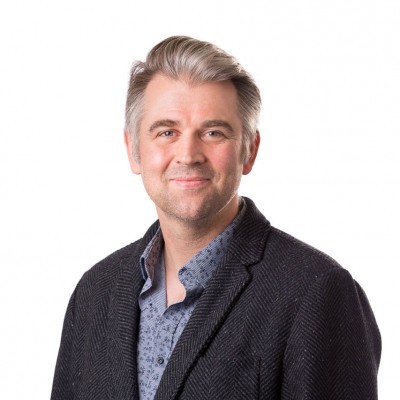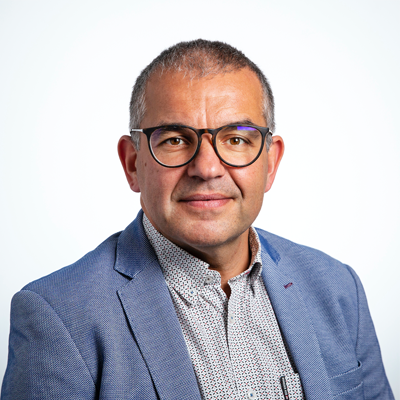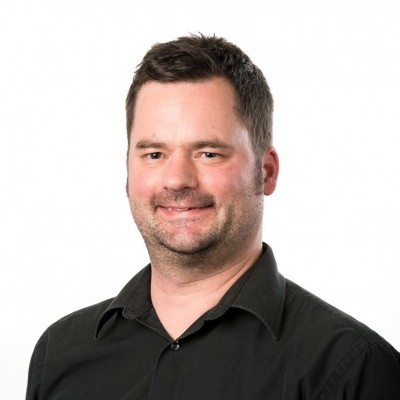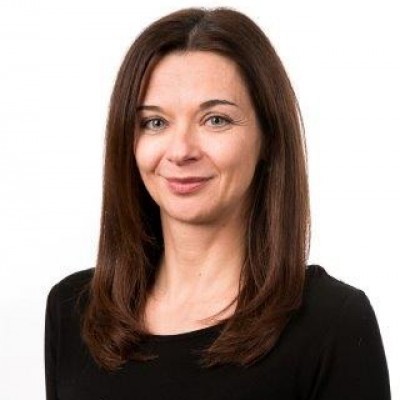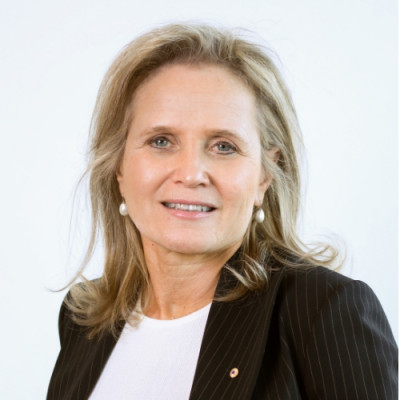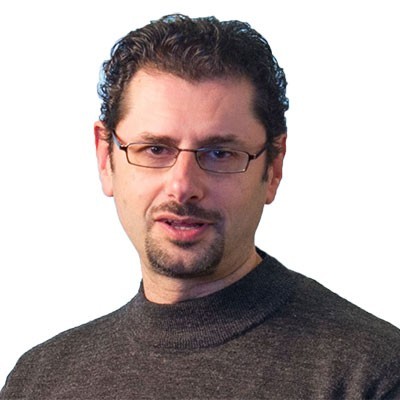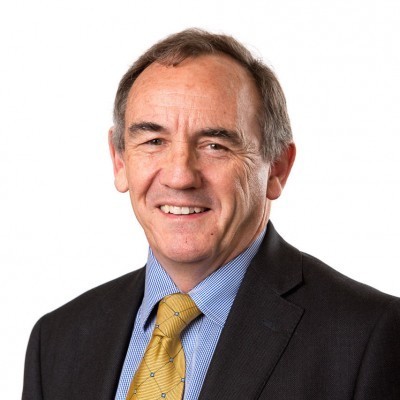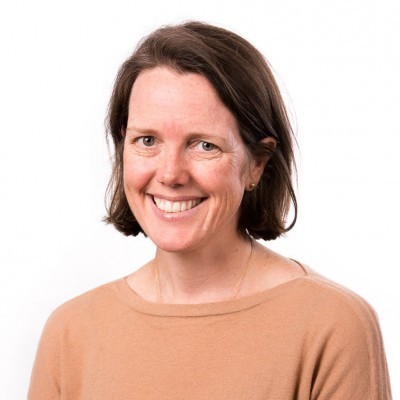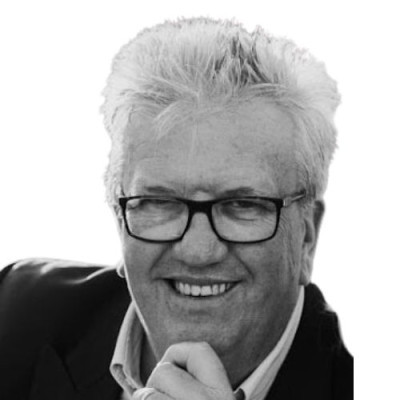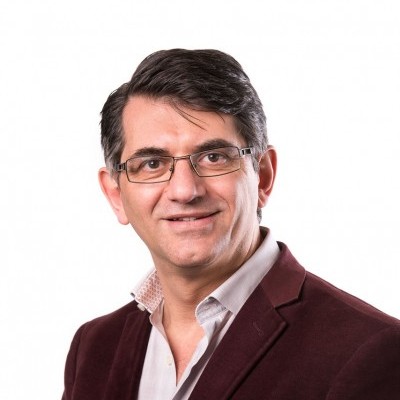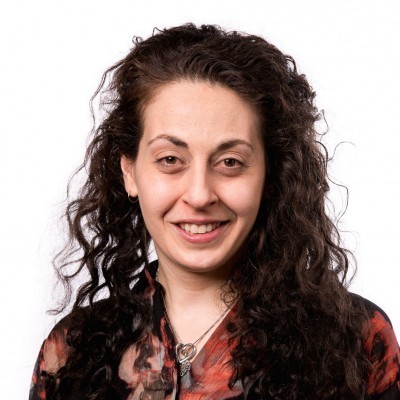-
Research Groups
-
Kent Group
Stephen’s group studies immunity to HIV, influenza and SARS-CoV-2. They are analysing a variety of vaccine strategies, including nanoparticle-based vaccines. They are studying a series of immune responses to gain better insights into protective immunity to important viral pathogens. They are developing monoclonal antibody therapies for HIV, influenza and SARS-CoV-2 to improve the treatment of these infections. The Kent group works very closely with Dr Amy Chung’s laboratory at the Doherty Institute.
Current Projects
-
Antibody dependent cellular cytotoxicity (ADCC) - a neglected anti-HIV immune response!
The importance of HIV-specific Antibody-dependent Cellular Cytotoxicity (ADCC) antibodies that inhibit viral replication mediated through the Fc receptor is becoming clear. In view of the difficulty of inducing broad neutralising antibodies and effective T cell immunity, exploring HIV-specific ADCC is a priority. HIV-specific ADCC has been under-explored both from the point of view of rapid, reliable assays to measure and characterise ADCC responses and the ability to specifically induce high level HIV-specific ADCC antibodies by vaccination. Recent data from the RV144 vaccine study in Thailand suggest a role for non-neutralising antibodies in protection from HIV.
-
Combined Influenza-AIDS Vaccines
Influenza and HIV are both serious global pathogens. Can a single vaccine be designed to cover both viruses? Recent advances in reverse genetic techniques allow insertion of foreign antigens into live influenza viruses. Further, live attenuated influenza vaccines are now highly effective vaccines. Stephen’s group is designing recombinant influenza vaccines with inserted HIV antigens to test as a combined Influenza-AIDS vaccine. An advantage of this strategy is that as a mucosal virus, there is a strong likelihood that immunity at mucosal surfaces, where HIV is first encountered, can be induced with this approach.
-
Nanoparticle HIV vaccines
No safe HIV vaccines have been able to stimulate durable, activated T-cell immunity. Stephen’s group is investigating an exciting HIV vaccination approach using hollow, submicron, delivery vehicles (nanocapsules) as carriers for HIV vaccines. This is a novel, cross-disciplinary project within the Australian Research Council (ARC) Centre of Excellence in Bio-Nano interactions. Nanocapsules are designed to induce optimal immune responses by protecting antigens from degradation prior to reaching sites of immune activation and activate antigen presenting cells in a way that will initiate anti-viral immune responses. Stephen’s group aims to use controlled-release nanocapsules to stimulate durable anti-HIV responses in vivo.
-
NKT cells, MAIT cells and HIV
NKT cells are a small but very important lymphocyte population in blood that possess potent antiviral and antitumor activities. NKT cells are depleted during HIV infection. Stephen’s group are now devising strategies to enhance the biologic utility of NKT cells in fighting HIV. They are also starting to study an interesting population of cells called Mucosal-associated Invariant T cells (MAIT cells). MAIT cells are likely to be important in protecting HIV-infected people from damage at mucosal surfaces such as the gut.
-
Influenza – specific ADCC: role in a Universal Flu vaccine?
Influenza mutates regularly to avoid neutralising antibodies. Immune responses targeting more conserved areas are needed to combat new flu pandemics. Stephen’s group have adapted and refined their HIV ADCC assays to study Influenza. They have found there is a remarkable degree of cross-reactivity in influenza ADCC immunity. They recently found that influenza ADCC can play a role in reducing the severity of the 2009 Swine Flu epidemic. The work opens up a whole new field of flu immunity. They are now studying how flu-specific ADCC can be induced by vaccination and lead to protective immunity.
-
Influenza immunity and novel vaccines
Seasonal Influenza continues to extract a huge toll on the community and there is the ever-present threat of new pandemics. Led by Dr Adam Wheatley, we are making headway into improving our understanding of influenza immunity with a view to improving vaccines. Current vaccines are imperfect and often target variable regions of the virus which “drift” away from effective immunity each winter. We are focussing on improving immunity, both antibodies and CD4 T cell helper cells (“Tfh”) to conserved parts of influenza, including the stem of HA. We also have a major interest in improving ADCC antibodies against influenza. The group has had a major push to understand and improve immunity to Influenza type B viruses and we have now generated panels of monoclonal antibodies that target this virus. We have series of exciting projects studying nanoparticle vaccines where tiny capsules are loaded with vaccine antigens to protect them from degradation and target important immune cells that stimulate effective immunity.
-
Nanoparticle Vaccine Research
The Kent group is part of an Australian Research Council funded Centre of Excellence on nanomedicine. They have a series of work studying how small particles “nanoparticles” interact with the immune system and how this could be exploited in the future as vaccines or therapies. Tke Kent group have collaborated widely with many of the groups within their centre, including the Caruso group, the Crampin group, the Davis group, the Pu-Chun Ke group, the Johnson group, the Whittaker group, the Thurecht group, and the Thordarson and Kavallaris groups. They are hosting research in the Kent laboratory from Dr David Ju of the Caruso group and they are jointly supervising Mai Vu from the Davis/Truong group at Monash for her PhD. They are actively working on liposomal, mesoporous silica templated, and self-assembling ferritin nanoparticle vaccines for influenza, HIV and SARS-CoV2.
-
COVID-19 animals models
The Kent group are working to improve the ability to measure anto-COVID-19 immunity in ferrets together with collaborators at CSIRO. They recently developed the capacity to clone out influenza-specific monoclonal antibodies from ferrets (Wong et al Plos One, 2020 in press). They have also recently developed better reagents to study Tfh, B cells and NK cells in ferrets – these should be useful reagents to better understand immunity to SARS-CoV2 infection in ferrets.
-
COVID-19 vaccines
A group led by Dr Adam Wheatley, Dr Jennifer Juno and Hyon-Xhi Tan are making protoype vaccines against SARS-CoV2 based on their track record in Influenza, HIV and with nanoparticles. They are comparing spike protein vs RBD protein immunisation with in-depth humoral, B cell and T cell studies in mice and larger animal models. They are developing self-assembling ferritin nanoparticle vaccines, analogous to recently published work in Influenza by Hannah Kelly and Dr Adam Wheatley. Dr Jennifer Juno is leading the work to improve antibody responses through induction of T-follicular helper responses, a critically important cell in the lymph node draining the site of vaccination.
Lab Team
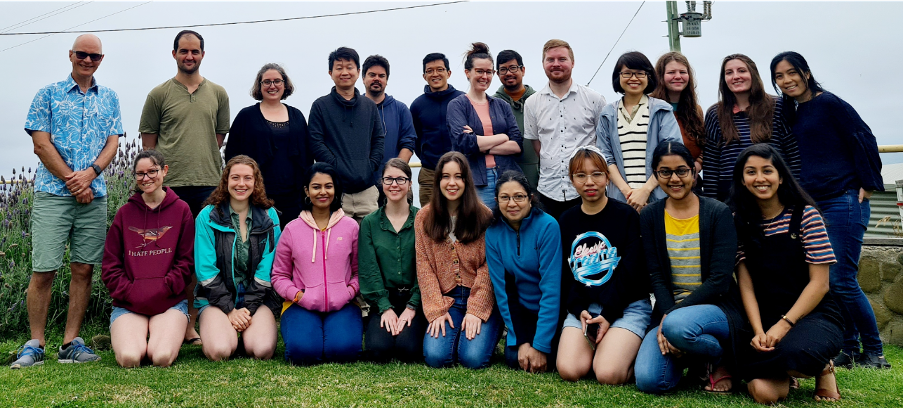
-
Dr Adam WheatleyLaboratory Head
-
Laboratory Head
-
Hyon-Xhi TanPostdoctoral Fellow
-
Research Fellow
-
Research Officer
-
Rosela WebsterPostdoctoral Fellow
-
Mai Ngoc VuPostdoctoral Fellow
-
Lara SchwabPostdoctoral Fellow
-
Mitchell ZhengPostdoctoral Fellow
-
Mai-Chi TrieuVisiting Postdoctoral Fellow
-
Andrew KellyResearch Assistant
-
Lauren BurmasResearch Assistant
-
Julie NguyenResearch Assistant
-
Robyn EsterbauerResearch Assistant
-
Thakshila AmarasenaResearch Support Officer
-
Jane BattenProject Manager
-
Janavi RambhatlaSenior Project Officer
-
Devaki PilapitiyaPhD Student
-
Ruth PurcellPhD Student (co-supervisor with Amy Chung)
-
Isaac Barber-AxthelmPhD Student
-
Kirsty FieldPhD Student
-
Samantha DavisPhD Student (co-supervisor with Amy Chung)
-
Thu DoPhD Student
-
Yee-Chen LiuPhD Student
-
Veronica ZoestPhD Student
-
Professor David O'ConnorHonorary
-
Professor Shelby O'ConnorHonorary
-
Dr David (Yi) JuHonorary
-
Dr Hillary VandervenHonorary
-
A/Prof Matt ParsonsHonorary
-
Dr Nghia TruongHonorary
-
Dr Sinth JegaskandaHonorary
-
A/Prof Steve RockmanHonorary
-
Dr Emily PilkingtonGuest Scientist
-
Dr Shiyao LiGuest Scientist
-
Diyana HassanelGuest Scientist
-
Zihnil MazradGuest Scientist
-
Barrow group
My lab is interested in how receptors expressed by immune cells distinguish normal healthy cells from malignant cells or pathogens. We want to understand how these receptors work together to regulate immune responses so we can design better clinical interventions.
-
Bedoui Group
The Bedoui Lab uses models of viral and bacterial infection to study how the innate and the adaptive immune system interact. Key foci are to understand how innate cells sense pathogens and how this information is integrated into protective adaptive T cell responses.
Other work areas include:Bacterial and Parasitic Infections
-
Brooks Group
Research in Andrew’s laboratory is largely centred on how natural killer cells and T cells impact the outcomes of viral infection, cancer and transplantation.
-
Chung group
The Chung group is interested in understanding the biophysical and functional properties of antibodies that are associated with protection against a range of infectious diseases, which will provide important insights to improve antibody-based vaccines and therapies.
Other work areas include:COVID-19, Viral Infectious Diseases
-
Corbett Group
Our team study mucosal-associated invariant T (MAIT) cells. We seek to understand how vitamin-based antigens are produced by microorganisms, how MAIT cells detect these antigens and how we can manipulate MAIT cell functions to improve outcomes in infectious and non-infectious diseases.
Other work areas include:Bacterial and Parasitic Infections
-
Gebhardt Group
Thomas’ group studies basic and translational aspects of immune responses in peripheral tissues. Their overall goal is to develop future vaccines and immunomodulatory therapies that target peripheral T cells for improved clinical outcomes in infection, inflammation and cancer.
-
Heath Group
Bill’s group’s cellular immunology research currently focuses on understanding killer T cell function with particular reference to improved vaccination strategies and understanding malarial disease.
Other work areas include:Malaria
-
Kallies Group
The Kallies group studies the molecular control of lymphocyte differentiation in response to antigen with a particular focus on T cells residing in non-lymphoid tissues, including tumors.
Other work areas include:Viral Infectious Diseases
-
Kedzierska Group
Professor Katherine Kedzierska’s team researches the immunity to viral infections, especially the newly emerged influenza viruses. Her work spans basic research – from mouse experiments to human immunity, through to clinical settings, with a particular focus on understanding universal CD8+ T cell immunity to influenza viruses. Her studies aim to identify key correlates of severe and fatal influenza disease in high-risk groups including children, the elderly and Indigenous Australians.
Other work areas include:COVID-19, Viral Infectious Diseases, Influenza
-
Laura Mackay Group
The Mackay Group studies memory T cell responses, with a focus on the signals that control tissue-resident memory T cell differentiation, and a view to harness these cells to develop new treatments against infection, cancer and autoimmune conditions.
-
Lewin Group
The focus of the Lewin group is to understand why HIV infection persists on antiretroviral therapy and to develop new strategies to eliminate latency. The lab also researches factors that drive liver disease in HIV-hepatitis B virus co-infection. The lab is also actively involved in COVID in relation to pathogenesis, the use of primary tissue models, and developing therapeutics using gene editing strategies.
Other work areas include:Viral Infectious Diseases
-
Mantamadiotis Group
The Mantamadiotis group studies basic and translational aspects of molecular and cellular responses in brain cancer. Their overall goal is to develop future therapies, including immunomodulatory therapies that target the tumour cells and tumour infiltrating lymphocytes for improved clinical outcomes in cancer.
-
Matthew McKay Group
The McKay Group focuses on developing computational models, statistical and machine learning methods to address problems in infectious diseases and immunology. Current research is aimed at understanding virus evolution and immune escape and for identifying potent targets for next-generation vaccines.
-
McCluskey Group
MAIT cells respond to precursors of riboflavin, allowing the immune system to detect microbial invaders. The McCluskey group aims to understand their role in infection/inflammatory conditions and is tackling this question using mouse models, human tissue analysis and structural biology.
If you are interested to collaborate with us, please, feel free to get in touch. Please note that the human and mouse MR1 tetramers developed in our laboratory can now be ordered through the NIH tetramer core facility.
-
Mueller Group
Research in Scott’s group is focused on examining immune responses to both acute and chronic viral infections. A particular emphasis on T cell responses and interactions with antigen presenting cells and lymphoid tissue stromal cells is currently driving the group, as well as an interest in neuro-immune interactions.
Other work areas include:Malaria
-
Purcell Lab
Professor Damian Purcell’s research group investigates the HIV-1 and HTLV-1 human retroviruses that cause AIDS and leukaemia/inflammatory pathogenesis respectively. The lab studies their genetic structure and gene expression with a focus on defining the mechanisms that control viral persistence and pathogenesis. The molecular interplay of viral and host factors during viral infection and the innate and adaptive immune responses to viral infection are examined. These molecular insights are used to develop new antiviral and curative therapeutics, preventive prophylactic vaccines and passive antibody microbicides and therapeutics. Some of these patented discoveries have been commercialised and we are assisting with clinical trials.
Other work areas include:COVID-19, Viral Infectious Diseases, Bacterial and Parasitic Infections, HIV
-
Reading Group
Patrick’s group investigates how the body first detects and responds to respiratory viruses. They investigate viral attachment factors, cellular receptors and entry pathways, virus-induced activation of host genes and the mechanisms by which intracellular host proteins can block virus replication.
Other work areas include:COVID-19, Viral Infectious Diseases, Influenza
-
Robins-Browne Group
Research in Roy’s laboratory is partly focused on how E. coli causes diarrhoea, with the aims of identifying better ways to diagnose, treat and prevent these infections. Another theme is the development of new types of antibacterial agents.
Other work areas include:Enteric infections, Antimicrobial Resistance
-
Sullivan Group
Sheena’s epidemiology group at the WHO Collaborating Centre for Reference and Research on Influenza undertakes research into understanding influenza vaccine effectiveness and the validity of the methods used to estimate it. The group also provides technical assistance to partners in the Western Pacific Region of the WHO.
Other work areas include:COVID-19, Viral Infectious Diseases, Influenza
-
Tong Group
Steve’s group conducts clinical trials to optimise the treatment of infections due to methicillin-resistant Staphylococcus aureus and other bacterial pathogens. He also investigates the epidemiology and genomics of streptococcal infections, hepatitis B, influenza, and antimicrobial resistance in Australian Indigenous communities.
Other work areas include:Staphylococcus aureus, Viral Infectious Diseases, Antimicrobial Resistance, Bacterial and Parasitic Infections, Public Health
-
Vaccine and Immunisation Research Group
Based at the Doherty Institute, the Vaccine and Immunisation Research Group (VIRGo) works in partnership with the Murdoch Children’s Research Institute (MCRI, Infection and Immunity Theme). Our research enables us to advise policy makers on the optimal use of vaccines in national immunisation schedules, in pandemic influenza preparedness and response, and in vaccine safety. Our work provides practical bridges (translation) between theory and the real-world delivery of vaccine programs. VIRGo leads Vax4COVID, an alliance of experienced Australian vaccine clinical trial centres formed to facilitate the conduct of Phase II trials of SARS-CoV-2 vaccine candidates.
Other work areas include:COVID-19, Viral Infectious Diseases
-
Valkenburg Lab
The Valkenburg laboratory investigates viral immunity to emerging viruses with pandemic potential: influenza viruses and SARS-CoV-2. Our work spans randomised control vaccine trials, observational studies of infected patients and animal models to decipher immune correlates to drive novel translational outcomes for specific diagnostics, targeted therapeutics and next generation vaccines for public health impact.
Other work areas include:COVID-19, Viral Infectious Diseases, Public Health, Influenza
-
Villadangos Group
Jose’s group combines immunology, biochemistry and cell biology to study how the adaptive immune system detects pathogens and cancer, a process called Antigen Presentation. Their research is applicable to vaccine development, treatment of critically ill patients and the fight against cancer.
-
Wakim Group
Linda’s group’s main research focus is understating the mechanism of action and regulation of expression of antiviral proteins. Linda’s group also aims to characterise CD8 T cell responses within the lung following virus infection.
Other work areas include:Influenza
-




